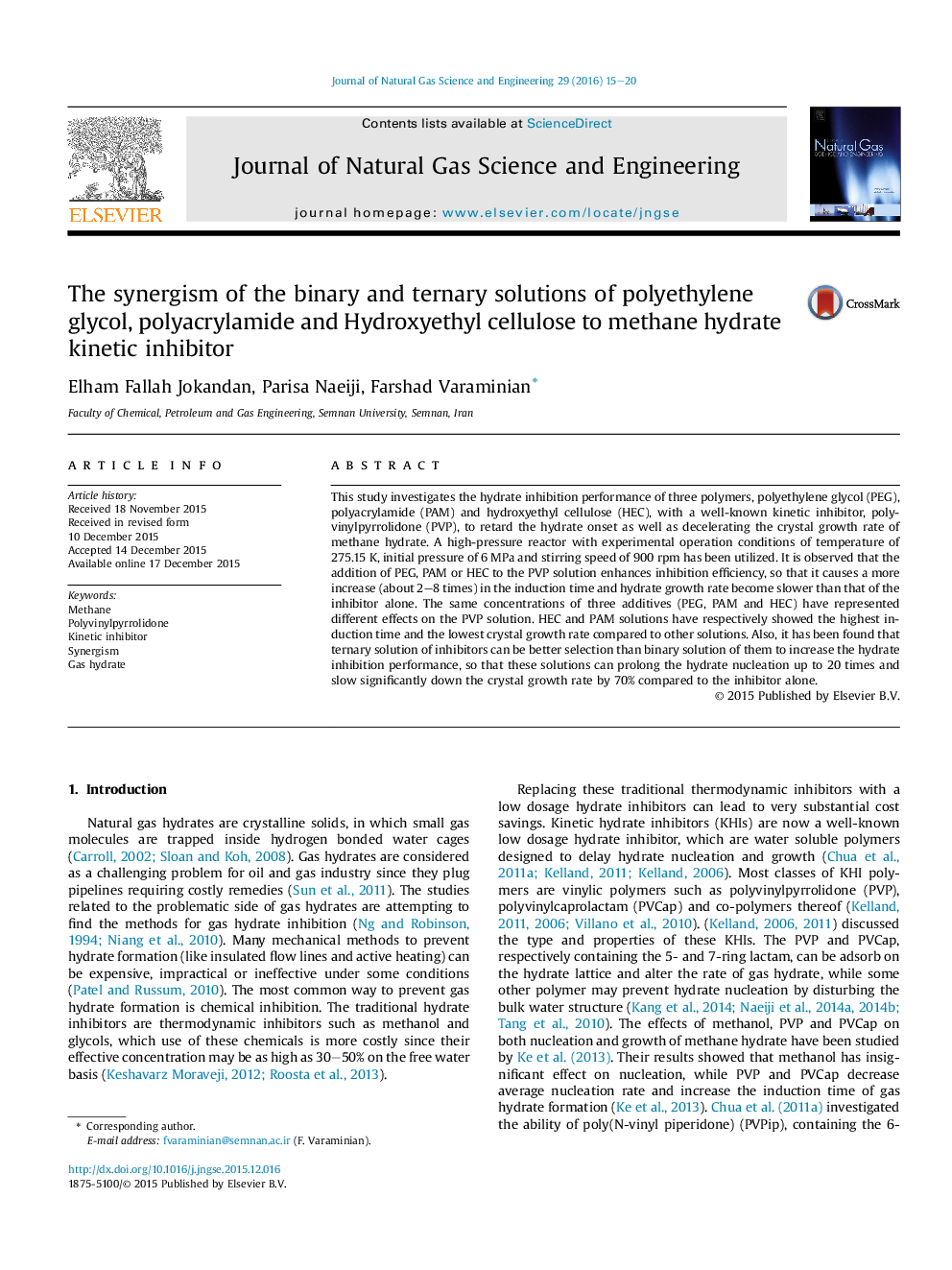| Article ID | Journal | Published Year | Pages | File Type |
|---|---|---|---|---|
| 1757334 | Journal of Natural Gas Science and Engineering | 2016 | 6 Pages |
•Non-ionic polymers affect both the nucleation and growth of methane hydrate.•PEG, PAM and HEC enhance inhibition efficiency of PVP solution.•The ternary solution of inhibitors can be better selection than binary solution.
This study investigates the hydrate inhibition performance of three polymers, polyethylene glycol (PEG), polyacrylamide (PAM) and hydroxyethyl cellulose (HEC), with a well-known kinetic inhibitor, polyvinylpyrrolidone (PVP), to retard the hydrate onset as well as decelerating the crystal growth rate of methane hydrate. A high-pressure reactor with experimental operation conditions of temperature of 275.15 K, initial pressure of 6 MPa and stirring speed of 900 rpm has been utilized. It is observed that the addition of PEG, PAM or HEC to the PVP solution enhances inhibition efficiency, so that it causes a more increase (about 2–8 times) in the induction time and hydrate growth rate become slower than that of the inhibitor alone. The same concentrations of three additives (PEG, PAM and HEC) have represented different effects on the PVP solution. HEC and PAM solutions have respectively showed the highest induction time and the lowest crystal growth rate compared to other solutions. Also, it has been found that ternary solution of inhibitors can be better selection than binary solution of them to increase the hydrate inhibition performance, so that these solutions can prolong the hydrate nucleation up to 20 times and slow significantly down the crystal growth rate by 70% compared to the inhibitor alone.
